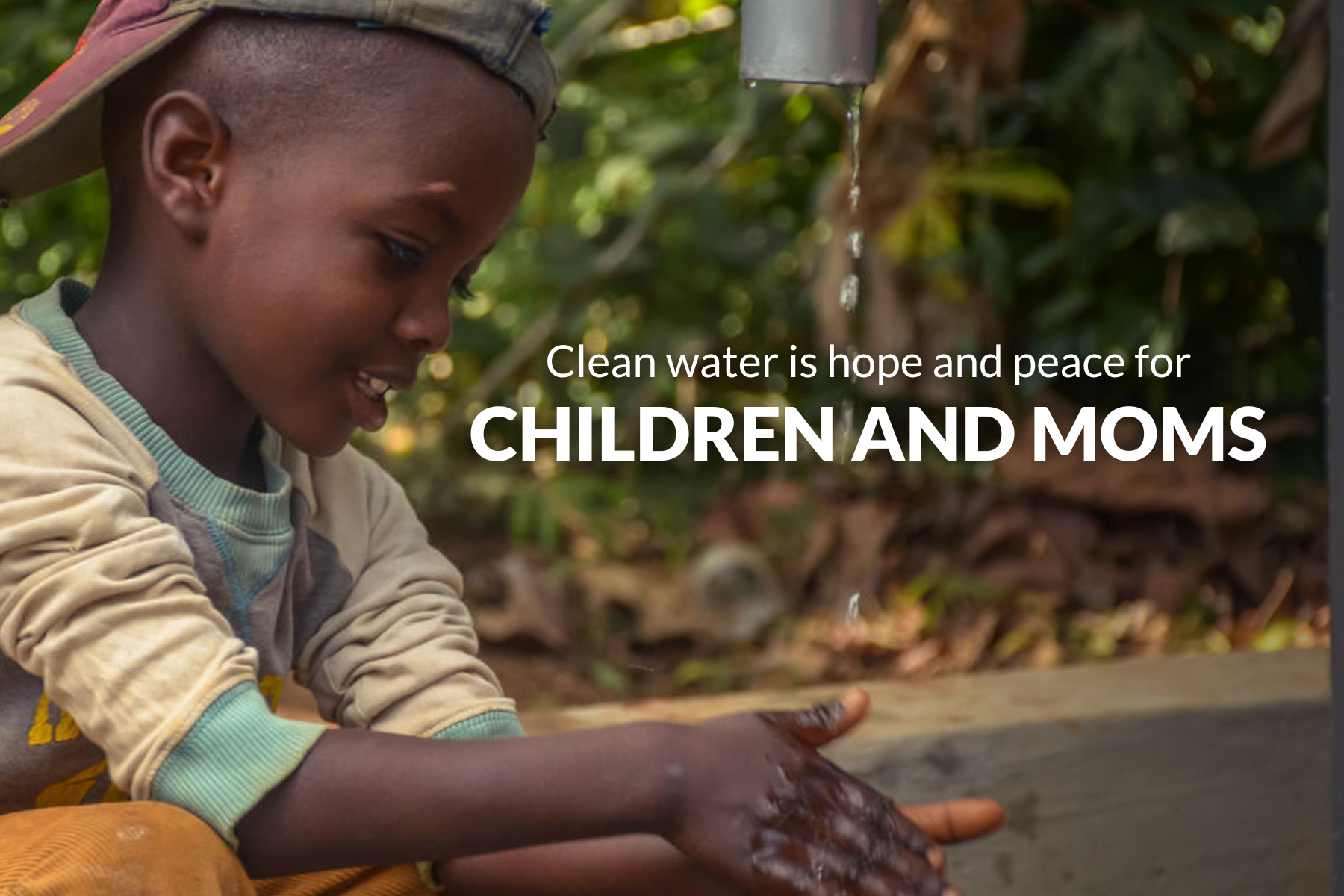Estimated read time: 4 minutes
Water is seemingly simple yet essential and too often taken for granted. This World Water Day is our chance to pause and reflect on the impact this life-giving and sustaining resource in our own lives.
Globally, 2.2 billion people lack access to safely managed drinking water. But clean water is so much more than just water to drink. Clean water is a ripple effect that can change everything for a child!
Clean water is health.
Water, sanitation, and hygiene (WASH) is the cornerstone of human health and well-being. Adequate sanitation facilities and proper hygiene practices are the first line of defense against disease. This ensures that communities can thrive without being rampant with disease.
In the heart of Rwanda, at Ntoma Health Center, dedicated midwife Claudine faces the daily challenge of delivering babies without a supply of clean water. She emphasizes the difficulties “The most challenging part is maintaining hygiene. We have to make sure our hands are clean. Without water it makes it very difficult.”
“The most challenging part is maintaining hygiene….Without water it makes it very difficult.”
Claudine, midwife at the Ntoma Health Center in Rwanda
The center serves over 37,000 people yet receives water infrequently due to the limited capacity of the local supply system. When the dry season hits, they go up to four months without water. During this time, Claudine must rely on rainwater. A shortage of water not only hinders hygiene practices, but also poses challenges in preventing infections.
“Water is the source of life,” Claudine says. “If we had water, our work would be so much easier. It would be so much better: from the time I deliver, to the time I receive the child in a clean environment. Also, for the mother that is delivering, it is easier to prevent infections when you have clean water. Having clean water would help the child be protected until they leave the hospital.”
The struggle at Ntoma Health Center underscores the urgent need for reliable water access to enhance the quality of healthcare services provided to the community.

Clean water is education.
In many parts of the world, children face barriers to education due to the lack of adequate WASH facilities in schools. Clean water and proper sanitation ensure a healthier learning environment and directly impact school attendance. This is especially true for girls. In the developing world, girls are primarily responsible for collecting water, often from remote regional wells. On average, girls walk 6 kilometers—3.7 miles—everyday to collect water. The journey keeps girls from attending school and can be dangerous. Additionally, menstruating girls may have to stay home due to the lack of private and hygienic sanitation facilities. Hygiene education fosters good practices that prevent the spread of illnesses within the students. Bringing clean water to schools is a fundamental step toward keeping girls in school.

Clean water is a livelihood.
Clean water is essential for agriculture, business, and healthcare. In rural areas where agriculture is the main source of income, reliable water sources are critical for irrigation and ensuring crop yields. Proper sanitation practices keep livestock healthy and prevent water contamination. Along with agriculture, proper hygiene and access to clean water allows businesses to thrive. Investing in WASH enhances health and becomes a catalyst for economic growth, poverty reduction, and the sustainable development of communities and their livelihoods.
“Water is the source of life.”
Claudine, midwife at the Ntoma Health Center in Rwanda
World Vision’s clean water impact
World Vision is the leading nongovernmental provider of clean water services in the developing world. With the support of generous donors, World Vision is investing $200 million in annual WASH programming across more than 40 countries. By implementing innovative clean water projects, World Vision is playing a pivotal role in enhancing hygiene education, constructing sanitation facilities, and developing water infrastructure.
WASH and HCF Bill
In a bipartisan effort to improve access to safe and sustainable water, sanitation, and hygiene (WASH) in healthcare facilities worldwide, U.S. representatives Grace Meng (D-NY), Earl Blumenauer (D-OR), and Darin LaHood (R-IL) have introduced H.R. 5545, the Global Water, Sanitation, and Hygiene (WASH) in Healthcare Facilities Act. Introduced on September 18, 2023, this legislation has significant implications for mothers and their children. It’s the first bill of its kind that addresses the critical connection between WASH and disease prevention. The bill prioritizes strengthening health systems, building health worker capacity, and ensuring safety for patients, especially women and girls.


